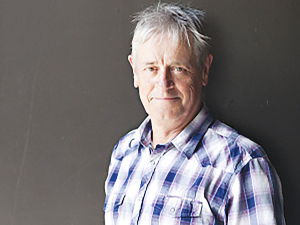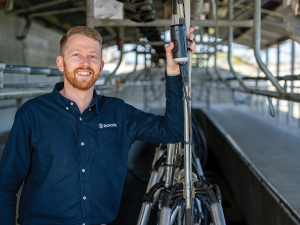OPINION: Last month, a white paper on RA was released: "Regenerative Agriculture in Aotearoa New Zealand - research pathway to build science-based evidence and national narratives."
We are told that 200-plus people contributed to this 55-page report. Lead author Dr Gwen Grelet chided the sceptics, "It's time to stop bickering and focus on identifying any true benefits regenerative agiculture might have for New Zealand."
If bickering is what it is, then bicker I must!
I am appalled by some of the junk science dished up in this report.
RA practitioners do not like synthetic fertilisers - they are considered "a disturbance to the diversity and function of the soil microbiome."
This is nonsense. There are many studies showing that correcting nutrients deficiencies using synthetic fertiliser enhances soil biological activity.
RA advocates suggest:"Using carbon-based products such as humate-derived substances to chelate fertiliser..." Teher is no credible science to support this idea.
To stimulate the soil, they recommend the use of fish hydroslyates, seaweed derivatives, diluted seawater, compost, aqueus composts extracts, biochar and isolated fungi/bacterial strains.
Have these people not heard of the famous Maxicrop Case and its aftermath? Most of these products cannot and do not work as claimed!
RA proponents suggest that:"Intentional bale 'wastage' creates a fertiliser effect and improves soil health."
As any farmer knows, if you self-feed a bale of hay in winter, animals munch around - shit, piss and pug - and leave behind a giant excreta patch.
There is little nutrient value in the hay itself and the nutrients left behind by the animals have been collected from elsewhere around the paddock. No net gain in fertiliser nutrients at the cost of an area of damaged soil!
They also comment that "some practitioners (of RA) use the Albrecht-Kinsey soil audit methodology to diagnose balancing requirements" (of soil nutrients). This theory of soil fertility has been rubbished many times by science. It results in higher fertiliser costs for no additional benefit.
To cap it off RA promoters note that "some practitioners take into account lunar and other astral cycles to determine the timing of particular interventions on their system, such as planting or harvesting." Such practices would take agricultural science firmly back to the middle ages when witches were burnt at the stake and the hobgoblins danced in the bottom of the garden.
The white paper asks us to "...focus on identifying any true benefits regenerative agriculture might have for New Zealand". Howveer, in terms of managing the fertility of our soils, RA offers no true benefits for New Zealand agriculture. In fact, it is worse than that - there is only a down side.
It is predictable from known science that if farmers do not replace the nurtients that are removed from the farm in product, the soil fertility will decline - and with it pasture and animal production. Because the science has been done, we can put numbers on this - the loss in production will be about 5% per year.
To reinforce the point, a recent comparative study in NSW Australia shows that the return on assets on RA farms is about 1% compared to conventional operations at 4%.
What galls me is- a t the very time we need a strong productive agricultural sector - we are dished up with this nonsense in the name of progress. It galls me that we have had a century of science-driven agricultural progress in New Zealand and are now being invited back to the middle ages in the name of progress.
It angers me that the report is presented to give the impression of a widespread and united front. There are about 200 co-authors, review participants, etc. listed.
That gives a false impression of unity. In December 2020, the New Zealand Institute of Agricultural and Horticultural Science published a 26 page special edition of its newsletter AgScience containing articles from 11 leading NZ scientists covering all aspects of agricultural science, exposing RA for what it is - pseudo-science.
The current crop of politicians and farmer bodies seem enamoured by RA, despite the fact that it is predictable that in the long term RA farmers will go back to farming like medieval peasants - a low input/low output feudal type of farming.
Perhaps that is what whe RA enthusiasts want?
Dr Doug Edmeades is a soil scientist and managing director of his own science consulting business agKnowledge.



















